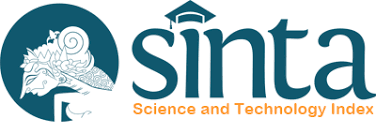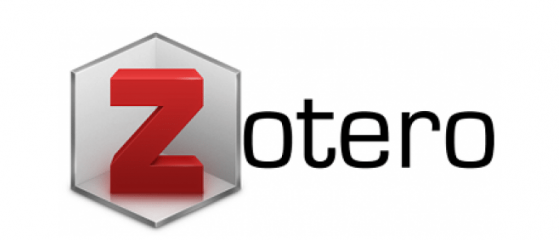INTEGRATING SHARIA ECONOMIC PRINCIPLES INTO CHOCOLATE AGRIBUSINESS: A CASE STUDY OF NGLANGGERAN VILLAGE, GUNUNGKIDUL REGENCY
Abstract
Abstrak: Penelitian ini mengkaji integrasi prinsip-prinsip ekonomi syariah dalam agribisnis cokelat di Desa Nglanggeran, Kabupaten Gunungkidul. Desa Nglanggeran dikenal dengan model agribisnis yang unik dan berkelanjutan, menggabungkan pertanian kakao dengan pariwisata untuk meningkatkan pengembangan ekonomi lokal. Penelitian ini menggunakan metode kualitatif dan kuantitatif dengan desain studi kasus untuk menganalisis bagaimana prinsip syariah seperti keadilan (Al-'Adl), kemaslahatan (Al-Maslahah), larangan riba, dan kemitraan (Syirkah) diterapkan dalam praktik agribisnis. Data dikumpulkan melalui wawancara dengan pemangku kepentingan utama dan sumber sekunder, yang berfokus pada peran kelompok tani, dukungan pemerintah, dan kolaborasi kelembagaan dalam pengelolaan agribisnis. Temuan menunjukkan bahwa prinsip-prinsip syariah berkontribusi pada distribusi keuntungan yang adil dan transparan, model pembiayaan yang etis, dan praktik bisnis berkelanjutan yang selaras dengan kesejahteraan masyarakat. Penelitian ini menyoroti pentingnya pengelolaan agribisnis yang etis dan berkelanjutan sebagai alat pemberdayaan ekonomi lokal serta memberikan rekomendasi strategis untuk meningkatkan keberlanjutan agribisnis cokelat melalui penerapan prinsip-prinsip syariah.
Kata kunci: ekonomi syariah, agribisnis cokelat, desa nglanggeran, keberlanjutan, pembiayaan islami.
Abstract: This study examines the integration of sharia economic principles into the chocolate agribusiness in Nglanggeran Village, Gunungkidul Regency. Nglanggeran Village is recognized for its unique and sustainable agribusiness model, combining cocoa farming with tourism to enhance local economic development. The study employs both qualitative and quantitative methods, utilizing case study design to analyze how sharia principles such as justice (Al-'Adl), benefit (Al-Maslahah), prohibition of usury, and partnership (Syirkah) are applied in agribusiness practices. Data were collected through interviews with key stakeholders and secondary sources, focusing on the role of farmer groups, government support, and institutional collaboration in agribusiness management. The findings reveal that sharia principles contribute to a fair and transparent distribution of profits, ethical financing models, and sustainable business practices that align with community welfare. This research highlights the importance of ethical and sustainable agribusiness management as a tool for local economic empowerment and provides strategic recommendations for enhancing the sustainability of cocoa agribusiness through sharia principles.
Keywords: sharia economics, cocoa agribusiness, nglanggeran village, sustainability, islamic finance.
Downloads
References
Adhi Saputro, W., Purnomo, S., & Rahmawati, I. (2021a). Contribution of agroforestry plants to farmers’ income in Nglanggeran Agricultural Technology Park. E3S Web of Conferences, 305, 06001. https://doi.org/10.1051/e3sconf/202130506001
Adhi Saputro, W., Purnomo, S., & Rahmawati, I. (2021b). Contribution of agroforestry plants to farmers’ income in Nglanggeran Agricultural Technology Park. E3S Web of Conferences, 305, 06001. https://doi.org/10.1051/e3sconf/202130506001
Al-Roubaie, A., Professor of Economics College of Business and Finance Ahlia University Manama Bahrain, D. of A. & E., M. Sarea, A., & Associate Professor College of Business and Finance Ahlia University Manama Bahrain, D. of A. & E. (2019). Green investment and sustainable development: The case of Islamic finance. Journal of Islamic Business and Management, 09(01). https://doi.org/10.26501/jibm/2019.0901-002
Ardi Kusuma, R., Diah Setiowati, A., Dwi Saputro, A., & Mada, G. (n.d.). Applying Appropriate Technology on Diversification of Chocolate Based Food Products in Small and Medium Enterprises of Cacao Chocolate Processing: The Case of Griya Cokelat Nglanggeran. https://doi.org/10.21467/proceedings.151
Balz, K., & Saeed, A. (2000). Islamic banking and interest: A study of the prohibition of Riba and its contemporary interpretation. The Journal of Law and Religion, 15(1/2), 481. https://doi.org/10.2307/1051551
Bello, H. S., Bauchi, A. T. A. P., Galadima, I. S., Jibrin, A.-M. A., Studies, A. D. R. C. of L. and I., & University, A. T. B. (2018). Appraisal of the Salam Islamic mode of financing agribusiness and agriculture among rural farmers in Bauchi state of Nigeria. Socioeconomic Challenges, 2(1). https://doi.org/10.21272/sec.2(1).56-62.2018
Bertillo, D. J. B., & Salando, J. B. (2013). Principles and practice of Islamic finance systems. SSRN Electronic Journal. https://doi.org/10.2139/ssrn.1880028
Cahyadi, W. D. (2021). Kemitraan Produksi Benih Jagung Hibrida Antara PT. Agri Makmur Pertiwi, Agen (Grower) dan Kelompok Tani Sidodadi di Kecamatan Prambanan Kabupaten Sleman. Proceedings Series on Physical & Formal Sciences, 2, 324–337. https://doi.org/10.30595/pspfs.v2i.206
Campbell, S., Greenwood, M., Prior, S., Shearer, T., Walkem, K., Young, S., Bywaters, D., & Walker, K. (2020). Purposive sampling: complex or simple? Research case examples. Journal of Research in Nursing: JRN, 25(8), 652–661. https://doi.org/10.1177/1744987120927206
Castleberry, A., & Nolen, A. (2018). Thematic analysis of qualitative research data: Is it as easy as it sounds? Currents in Pharmacy Teaching & Learning, 10(6), 807–815. https://doi.org/10.1016/j.cptl.2018.03.019
Daniswara, N. (2024). Pembangunan Wilayah Secara Endogen Sebagai Upaya Dalam Mewujudkan Potensi Desa Wisata. SOSEBI Jurnal Penelitian Mahasiswa Ilmu Sosial Ekonomi Dan Bisnis Islam, 4(1), 78–93. https://doi.org/10.21274/sosebi.v4i1.9235
Daniswara, N., & Habib, M. A. F. (2024). Kohesi Sosial Dan Ekonomi Dalam Pertanian Porang di Desa Selur, Ponorogo. Juornal of Economics and Policy Studies, 5(1), 55–65.
Daniswara, N., Wibowo, A., Kiptyah, N. M., Khikmah, S. N., Farhana, H., Lindiawatie, L., Surachman, A., & Enala, S. H. (2024). Pendidikan Anti Korupsi.
Elvianita Martanti, D., & Suprayitno, H. (2019). Nderes profit sharing model on the brown sugar farmers in Nglegok district Blitar Regency. Journal of Academic Research and Sciences (JARES), 4(2), 39–50. https://doi.org/10.35457/jares.v4i2.841
Fageh, A. (2021). Contextualization of Maslahah Jasser Auda’s thought in Islamic economy. Indonesian Interdisciplinary Journal of Sharia Economics, 4(1), 132–155. https://doi.org/10.31538/iijse.v4i1.1344
Fang, E. S. (2014). Islamic finance in global markets: Materialism, ideas and the construction of financial knowledge. Review of International Political Economy, 21(6), 1170–1202. https://doi.org/10.1080/09692290.2013.858229
Fauji, I., Masruchin, M., Krisnaningsih, D., Aprilia, Y., & Rahmansyah, P. (2023). Syirkah Maza’arah business model for Economic Recovery: A case study of D’Durian Park. Indonesian Journal of Law and Economics Review, 18(3). https://doi.org/10.21070/ijler.v18i3.948
Hadi, R. (2018). Transformation and implementation of sharia principles in management of rural agribusiness business development programs. Ijtimā Iyya Journal of Muslim Society Research, 3(2), 170–178. https://doi.org/10.24090/ijtimaiyya.v3i2.1944
Ingram, V., Van Rijn, F., Waarts, Y., & Gilhuis, H. (2018). The impacts of cocoa sustainability initiatives in west Africa. Sustainability, 10(11), 4249. https://doi.org/10.3390/su10114249
Iswanto, J., Mas’ut, M., & Dianto, A. Y. (2021). Implementation of Maslahah in Modern Business Practices. Jurnal Dinamika Ekonomi Syariah, 8(2), 121–128. https://doi.org/10.53429/jdes.v8i2.232
Kamali, M. H. (2016). Islam and Sustainable Development. Islam and Civilisational Renewal, 7(1), 8–26. https://doi.org/10.12816/0027165
Kociemska, H. (2020). Public- Private Partnership: Reconciling Mainstream and Islamic Finance in sub-Saharan Africa. Emerging Markets Finance and Trade, 56(12), 2891–2907. https://doi.org/10.1080/1540496X.2019.1695594
Lalwani, S. K., Nunes, B., Chicksand, D., & Boojihawon, D. K. (roshan). (2018). Benchmarking self-declared social sustainability initiatives in cocoa sourcing. Benchmarking An International Journal, 25(9), 3986–4008. https://doi.org/10.1108/bij-07-2017-0186
Lamba, N., Van Tonder, A., & Raghavan, A. (2022). Unpacking qualitative methodology to explore experiences of mothers with children with Autism Spectrum Disorder in the UAE: A thematic analysis inquiry. International Journal of Qualitative Methods, 21, 160940692211102. https://doi.org/10.1177/16094069221110295
Lita, H. N., Mahamood, S. M. B., Suryamah, A., & Darodjat, R. (2023). Implementation of Syirkah Principles (Partnership) in the Establishment of a Waqf Asset Management Company. International Journal of Islamic Economics and Governance, 4(2), 65–77. https://doi.org/10.58932/MULD0031
Malakoutikhah, Z. (2020). Iran: Sponsoring or Combating Terrorism? Studies in Conflict & Terrorism, 43(10), 913–939. https://doi.org/10.1080/1057610X.2018.1506560
Nurdin, R., Yuhermansyah, E., & Afrillia, S. (2023). A reconnaissance of muamalah fiqh on the profit-sharing syistem in nutmeg management (case study in Meukek Sub-district). Dusturiyah: Jurnal Hukum Islam, Perundang-Undangan Dan Pranata Sosial, 13(1), 104. https://doi.org/10.22373/dusturiyah.v13i1.18447
Parray, T. A. (2012). Global Muslim Voices on Islam – Democracy Compatibility and Co-existence: A Study of the Views of Sadek Sulaiman, Louay Safi, Radwan Masmoudi, and Muqtedar Khan. Journal of Middle Eastern and Islamic Studies (in Asia), 6(1), 53–86. https://doi.org/10.1080/19370679.2012.12023198
Ramadhani, M., & Habib, M. A. F. (2021). Praktik Kartel dalam Perspektif Hukum Bisnis Syariah. Juornal of Economics and Policy Studies, 2(2), 1-12.
Roberts, K., Dowell, A., & Nie, J.-B. (2019). Attempting rigour and replicability in thematic analysis of qualitative research data; a case study of codebook development. BMC Medical Research Methodology, 19(1), 66. https://doi.org/10.1186/s12874-019-0707-y
Septeri, D. I. (2022a). Development Strategy of Cocoa Agroindustry Based on Farmer Groups in Kapanewon Patuk Gunungkidul Regency Daerah Istimewa Yogyakarta. Jurnal Agroindustri, 12(1), 61–71. https://doi.org/10.31186/j.agroindustri.12.1.61-71
Septeri, D. I. (2022b). Development Strategy of Cocoa Agroindustry Based on Farmer Groups in Kapanewon Patuk Gunungkidul Regency Daerah Istimewa Yogyakarta. Jurnal Agroindustri, 12(1), 61–71. https://doi.org/10.31186/j.agroindustri.12.1.61-71
Setia, M. (2017). Methodology series module 10: Qualitative health research. Indian Journal of Dermatology, 62(4), 367. https://doi.org/10.4103/ijd.ijd_290_17
Shah, H. S., & Susilo, A. (2022). E-commerce on the study of maslahah mursalah (a review from an Islamic economic perspective). Tasharruf: Journal Economics and Business of Islam, 7(1), 17. https://doi.org/10.30984/tjebi.v7i1.1944
Shantha Nair, S., & S Prem, S. (2020). A framework for mixed-method research. Shanlax International Journal of Management, 8(2), 45–53. https://doi.org/10.34293/management.v8i2.3220
Singh Bisht, I., Chand Rana, J., Jones, S., Estrada-Carmona, N., & Yadav, R. (2022). Agroecological approach to farming for sustainable development: The Indian scenario. In Biodiversity of Ecosystems. IntechOpen. https://doi.org/10.5772/intechopen.100281
Sobirin, M., & Khasanah, K. (2023). The pesantren scholars’ Fatwa on global warming and climate change: An integrative analysis of Islamic law, theology, and environmental sciences on the practice of multidisciplinary Ijtihad. Cogent Arts & Humanities, 10(1), 2193023. https://doi.org/10.1080/23311983.2023.2193023
Tireuov, K. M., Aitkhozhaeva, G. S., & Aitmukhanbetova, D. A. (2023). Models, forms and mechanisms of public-private partnership for the creation of competitive enterprises in agricultural sector. In Problems of AgriMarket (Issue 2, pp. 52–61). Kazakh Research Institute of Economy of Agro-Industrial Complex and Rural Development. https://doi.org/10.46666/2023-2.2708-9991.05
Wibowo, S. A., Prastika, D., & Wahyu, M. (2021). Implementation of corporate social responsibility in companies as A form of empowerment of Islamic economic production principles. Jurisprudentie : Jurusan Ilmu Hukum Fakultas Syariah Dan Hukum, 8(2), 60. https://doi.org/10.24252/jurisprudentie.v8i2.23526
Wijaya, A., Glasbergen, P., Leroy, P., & Darmastuti, A. (2018). Governance challenges of cocoa partnership projects in Indonesia: seeking synergy in multi-stakeholder arrangements for sustainable agriculture. Environment Development and Sustainability, 20(1), 129–153. https://doi.org/10.1007/s10668-016-9874-8
Wilson, R. (2019). Islamic economic principles. In Oxford Research Encyclopedia of Religion. Oxford University Press. https://doi.org/10.1093/acrefore/9780199340378.013.687
Zakariah, M. A. (2020). Integration food, feed, fuel and fertilizer systems in Kolaka regency. Jurnal At-Taghyir: Jurnal Dakwah Dan Pengembangan Masyarakat Desa, 2(1), 30–45. https://doi.org/10.24952/taghyir.v2i1.1851
The author has full rights to the articles that has been sent to An-Nisbah: Jurnal Ekonomi Syariah. The author is responsible for the originality of the articles and all the references used in the journal script.







